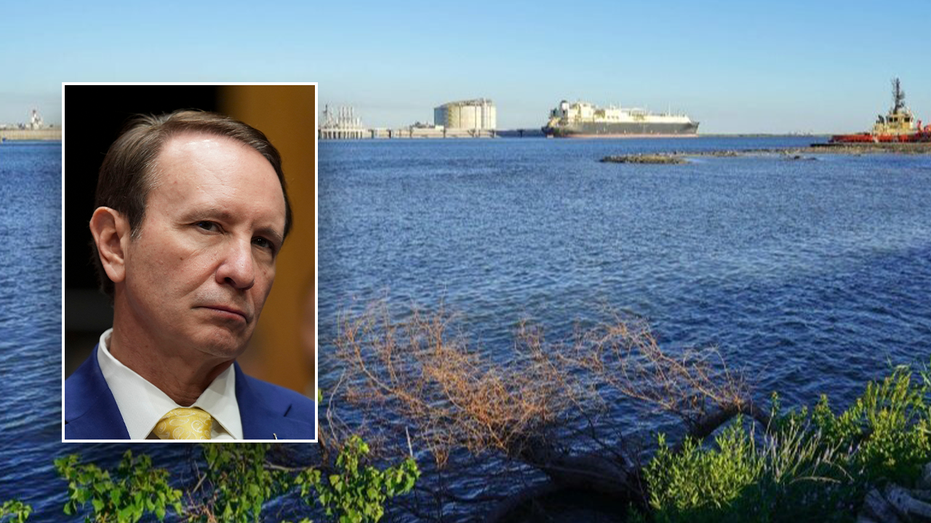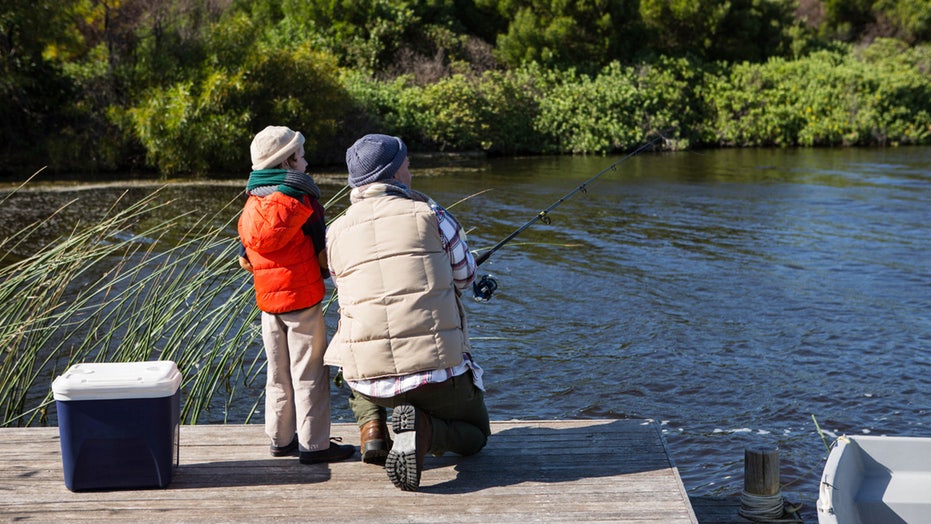British archaeologists recently uncovered eerie medieval gravestones during a search around an ancient shipwreck.
Bournemouth University announced the discovery in a press release on Friday. The gravestones were found in Studland Bay, off the coast of Dorset, and are believed to have been lying at the bottom of the English Channel for 800 years.
"The slabs, carved from Purbeck marble, were amongst the cargo of England’s oldest historic shipwreck, which sank off the Dorset coast during the reign of Henry III in the thirteenth century," the press release explained. Henry III, who was the son of King John, took the throne in 1216 and ruled until his death in 1272.
Pictures show that the grave slabs were preserved remarkably well over the centuries, despite one of the slabs being covered in barnacles.
QUARRY WORKERS JUST DOING THEIR JOBS MAKE PREHISTORIC DISCOVERY
Maritime archaeologists worked for over two hours to bring the stones back to the surface last Tuesday.
"One immaculately preserved slab measures one and a half meters and weighs an estimated 70 kilograms," the press release explained. "The other, much larger slab is in two pieces, with a combined length of two meters and a weight of around 200 kilograms." The slabs weigh around 154 pounds and 440 pounds, respectively.
The hefty gravestones were likely intended for important members of the clergy, who were venerated in medieval English society.
"Both have carvings of Christian crosses which were popular in the thirteenth century and the research team believe they were intended to be coffin lids or crypt monuments for high status individuals in the clergy," the statement added.
MICHIGAN RESEARCHERS DISCOVER EERIE 1909 SHIPWRECK AT BOTTOM OF LAKE SUPERIOR
Tom Cousins, an archaeologist who led the study, explained that the type of stone that the slabs were made from has also been found in Westminster Abbey, Canterbury Cathedral and Salisbury Cathedral.
"The wreck went down in the height of the Purbeck stone industry, and the grave slabs we have here were a very popular monument for bishops and archbishops across all the cathedrals and monasteries in England at the time," he explained.
"Although Purbeck marble was quarried near Corfe Castle [in Dorset], there has always been a debate about how much work was done here and how much was done in London," Cousins added. "Now we know they were definitely carving them here, but they hadn’t been polished into the usual shiny finish at the time they sank so there is still more we can learn."
CLICK HERE TO SIGN UP FOR OUR LIFESTYLE NEWSLETTER
Bournemouth University archaeologists are now working to desalinate the gravestones and conserve them before they are shown to the public next year. The school added that the significance of the shipwreck site has only been discovered recently.
"The site of the Mortar Wreck was first discovered as an ‘obstruction’ in 1982 but was assumed to be a pile of rubble on the seabed," the press release read. "Its significance was not realized until 2019 when Tom and a team from the University dived the site on the suggestion of local charter skipper Trevor Small and uncovered the secrets lying under the sand."
"The continued recovery of the artifacts, such as the mortars and grave slabs, will allow the Bournemouth team to learn more about thirteenth century life and the ancient craft of stonemasonry."
For more Lifestyle articles, visit www.foxnews.com/lifestyle.

 German (DE)
German (DE)  English (US)
English (US)  Spanish (ES)
Spanish (ES)  French (FR)
French (FR)  Italian (IT)
Italian (IT)  Macedonian (MK)
Macedonian (MK)  1 year ago
63
1 year ago
63








Comments